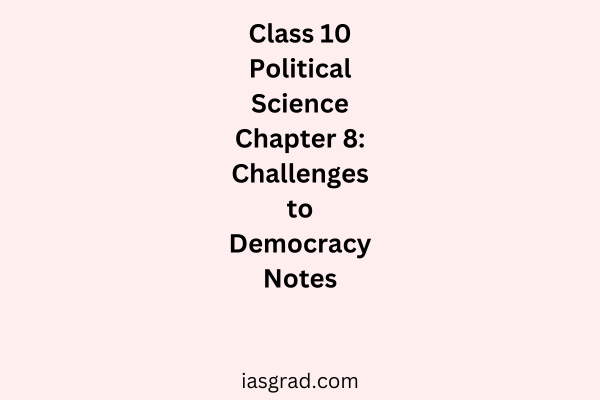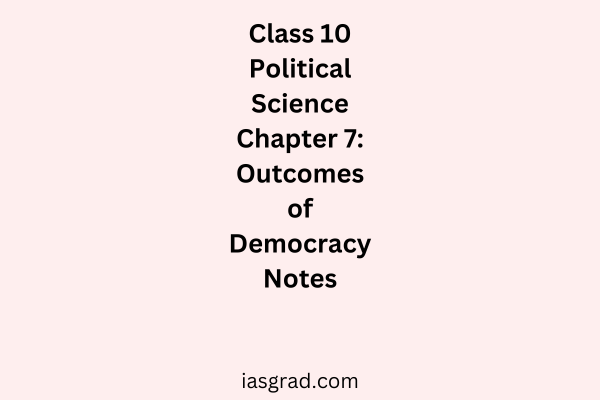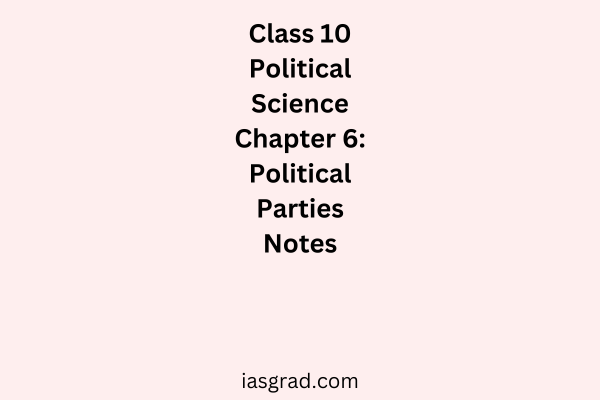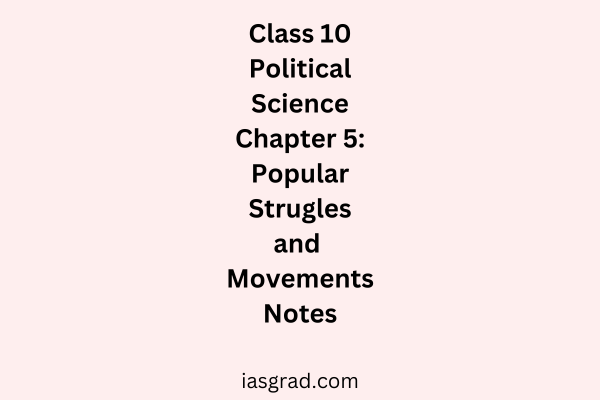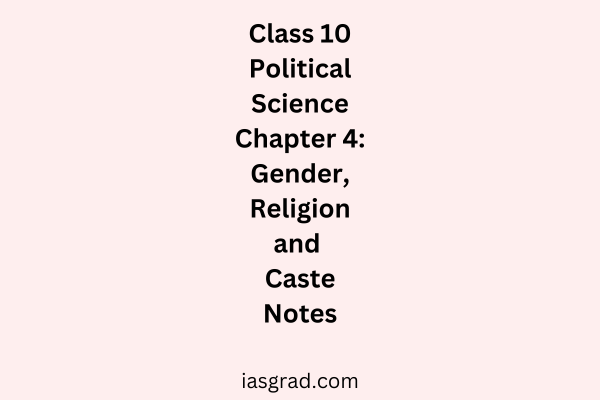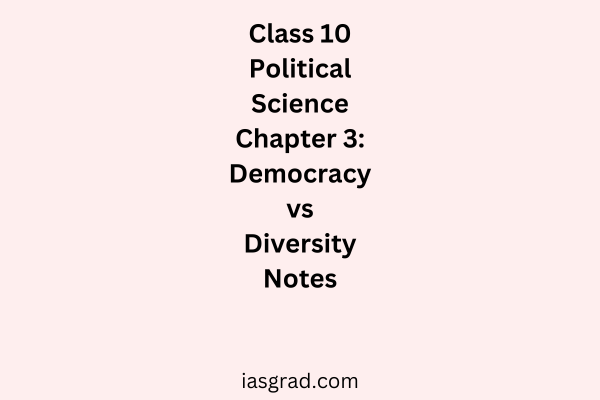Class 10 Polity Chapter 8: Challenges to Democracy Notes
Class 10 Polity Chapter 8: Challenges to Democracy Notes While democracy is an ideal form of government, it faces challenges like corruption, communalism, political violence, and lack of transparency. This chapter highlights the major challenges to democracy worldwide and suggests ways to strengthen democratic institutions through electoral reforms, citizen participation, and good governance. Introduction: Understanding […]
Class 10 Polity Chapter 8: Challenges to Democracy Notes Read More »
